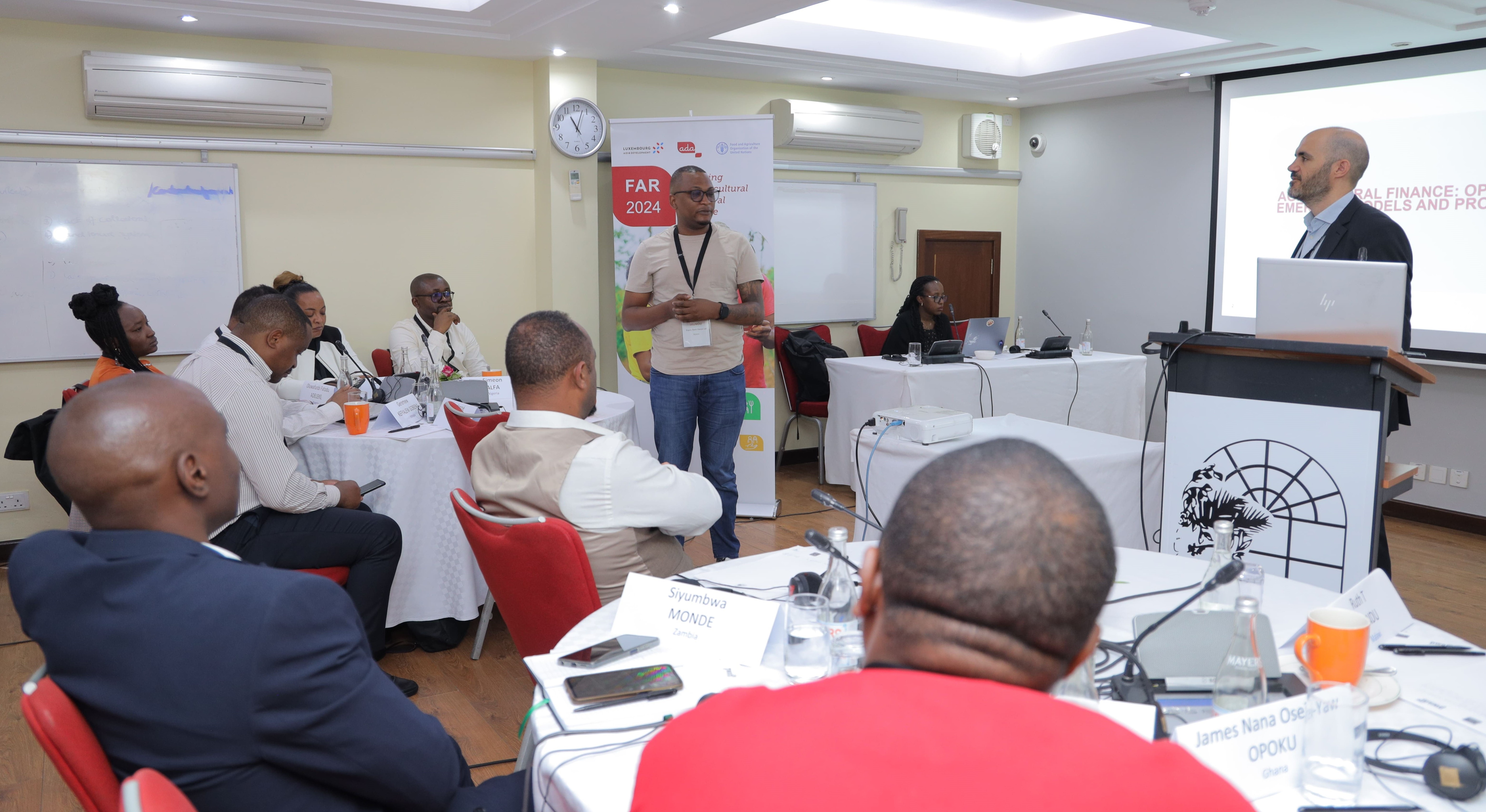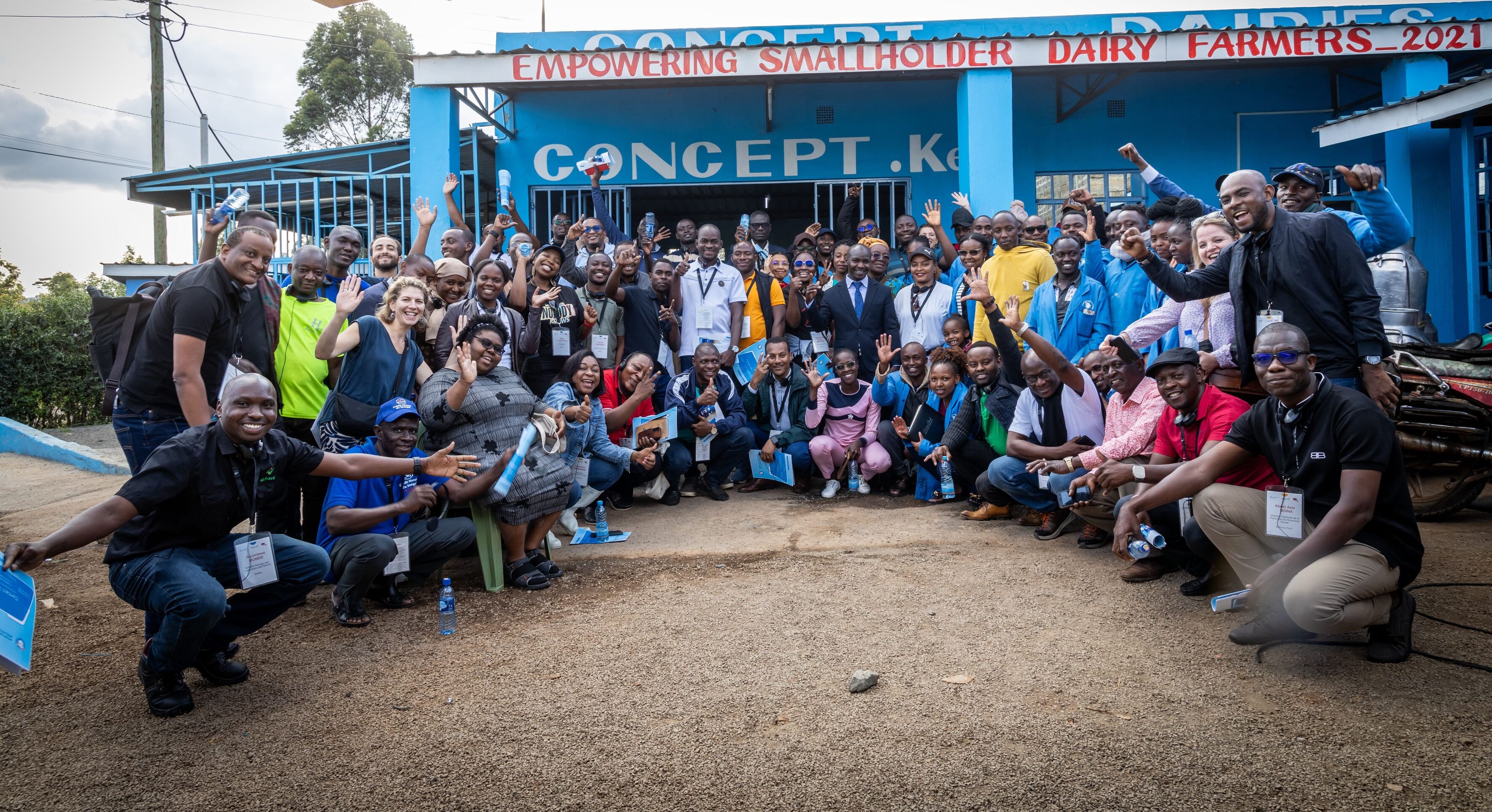Expanding the agriculture portfolio while mitigating climate risks: a complex challenge for African finance institutions

ADA training
©Cultural video
More than 40 representatives of African banks, microfinance institutions and other financial services providers participated in a training to gain and exchange knowledge on best ways for financing the agrifood sector.
Two sessions led by the FAO Investment Centre provided participants with key concepts on how to design financial products and services for agriculture, as well as on climate finance.
Organized from 21st to 26th October in Nairobi by the Food and Agriculture Organization of the United Nations (FAO), “Appui au Développement Autonome” (ADA) and supported by the Ministry of Foreign and European Affairs, Defence, Development Cooperation and Foreign Trade of Luxembourg, the training gathered participants from the banking sector of 19 African countries, for plenary sessions and side-events in English and French.
This in-person session in Nairobi constituted the second part of the Agricultural and Rural Finance training for the 40 best participants of the introductory online training over four weeks last April.
Massimo Pera, Senior agribusiness officer at the FAO Investment Centre, led a one-day participatory session on agricultural finance. The session introduced key concepts related to agricultural markets, and how financial institutions can estimate the potential demand for financial services. It also indicated possible financial products and services which can address different financing needs along food value chains, including: credit, savings, insurance, and alternatives to collateral-based financing (value chain financing schemes, inventory finance, warehouse receipts).
Anass Khallouqi, Agribusiness and finance investment specialist at the FAO Investment Centre, conducted sessions on climate finance for agriculture to provide financial institutions with key tools to run a sustainable climate smart agriculture portfolio while navigating sustainability and regulatory risks. “The portfolios of local financial institutions in Sub-Saharan Africa are increasingly prone to climate risks. A strong climate risk framework enables them to identify, monitor and mitigate these risks while reinforcing their ability to attract climate funds from international investors,” he said.
Other sessions were meant to deepen the participants' understanding of agriculture insurance and digital financial services for agricultural value chains. Overall, the approach was to provide practical guidance and tools to participants to use in their specific contexts.
According to Ms. Esperance Nsarhaza, from Equity Bank (Democratic Republic of Congo): “This practical training course is a valuable resource for any inclusive finance expert like me. The modules on market opportunities and product design, digital financial services, climate finance, etc. are enriching and crucial to better serve the rural world and contribute to its sustainability.”
Soulemane Djobo, pedagogical coordinator of the ‘Agricultural and Rural Finance Programme’ at ADA, highlighted some of the key benefits of the approach: “Local finance institutions are the most important stakeholders to finance sustainable practices in the agricultural sector. Giving them a platform to develop their skills on how to tap into agricultural and climate finance is crucial. The training was also the opportunity to engage with participants and gather insights on their experience in financing climate mitigation for agrifood companies and smallholder farmers.”
In addition to the training in Kenya, participants in previous editions have established an alumni group, which organizes ad hoc online events on cross-cutting topics related to agriculture and rural finance in Africa. FAO and ADA are now considering expanding this collaboration to other regions of the world as well.


ADA training. © Cultural video
